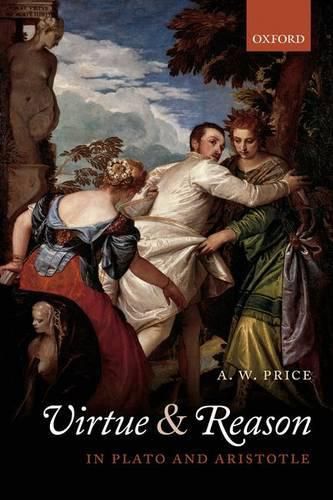Readings Newsletter
Become a Readings Member to make your shopping experience even easier.
Sign in or sign up for free!
You’re not far away from qualifying for FREE standard shipping within Australia
You’ve qualified for FREE standard shipping within Australia
The cart is loading…






In this illuminating study of the moral psychology of Plato and Aristotle, A. W. Price considers four related areas: eudaimonia, or living and acting well, as the ultimate end of action; virtues of character in relation to the emotions, and to one another; practical reasoning, especially from an end to ways or means; and acrasia, or action that is contrary to the agent’s own judgement of what is best. The focal concept is that of eudaimonia, which both Plato and Aristotle view as an abstract goal that is valuable enough to motivate action. Virtue has a double role to play in making its achievement possible, both in proposing subordinate ends apt to the context, and in protecting the agent against temptations to discard them too easily. For both purposes, Price suggests that virtues need to form a unity–but one that can be conceived in various ways. Among the tasks of deliberation is to work out how, and whether, to pursue some putative end in context. Aristotle returns to early Plato in finding it problematic that one should consciously sacrifice acting well to some incidental attraction; Plato later finds this possible by postulating schism within the soul. Price maintains that it is their emphasis upon the centrality of action within human life that makes the reflections of these ancient philosophers perennially relevant.
$9.00 standard shipping within Australia
FREE standard shipping within Australia for orders over $100.00
Express & International shipping calculated at checkout
Stock availability can be subject to change without notice. We recommend calling the shop or contacting our online team to check availability of low stock items. Please see our Shopping Online page for more details.
In this illuminating study of the moral psychology of Plato and Aristotle, A. W. Price considers four related areas: eudaimonia, or living and acting well, as the ultimate end of action; virtues of character in relation to the emotions, and to one another; practical reasoning, especially from an end to ways or means; and acrasia, or action that is contrary to the agent’s own judgement of what is best. The focal concept is that of eudaimonia, which both Plato and Aristotle view as an abstract goal that is valuable enough to motivate action. Virtue has a double role to play in making its achievement possible, both in proposing subordinate ends apt to the context, and in protecting the agent against temptations to discard them too easily. For both purposes, Price suggests that virtues need to form a unity–but one that can be conceived in various ways. Among the tasks of deliberation is to work out how, and whether, to pursue some putative end in context. Aristotle returns to early Plato in finding it problematic that one should consciously sacrifice acting well to some incidental attraction; Plato later finds this possible by postulating schism within the soul. Price maintains that it is their emphasis upon the centrality of action within human life that makes the reflections of these ancient philosophers perennially relevant.